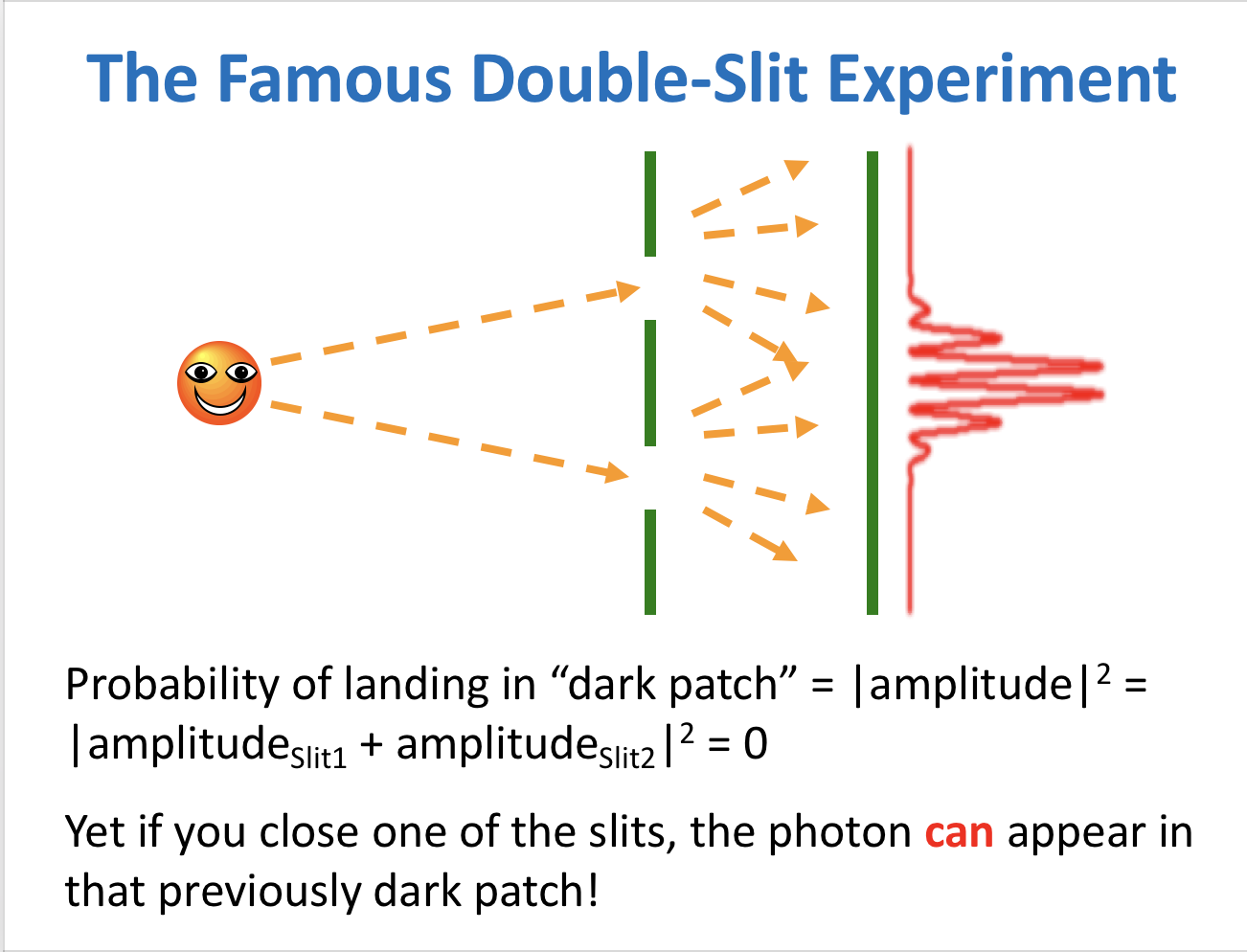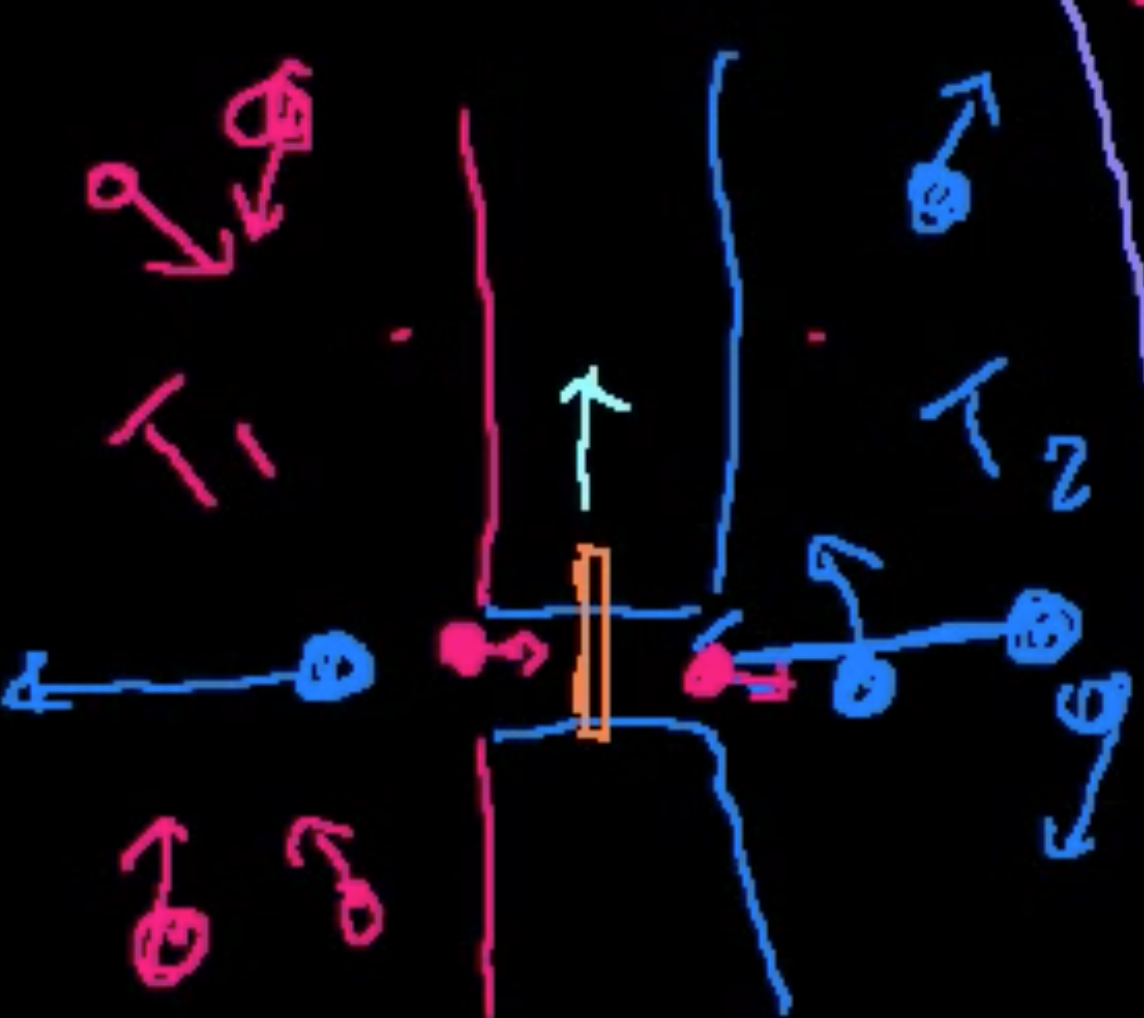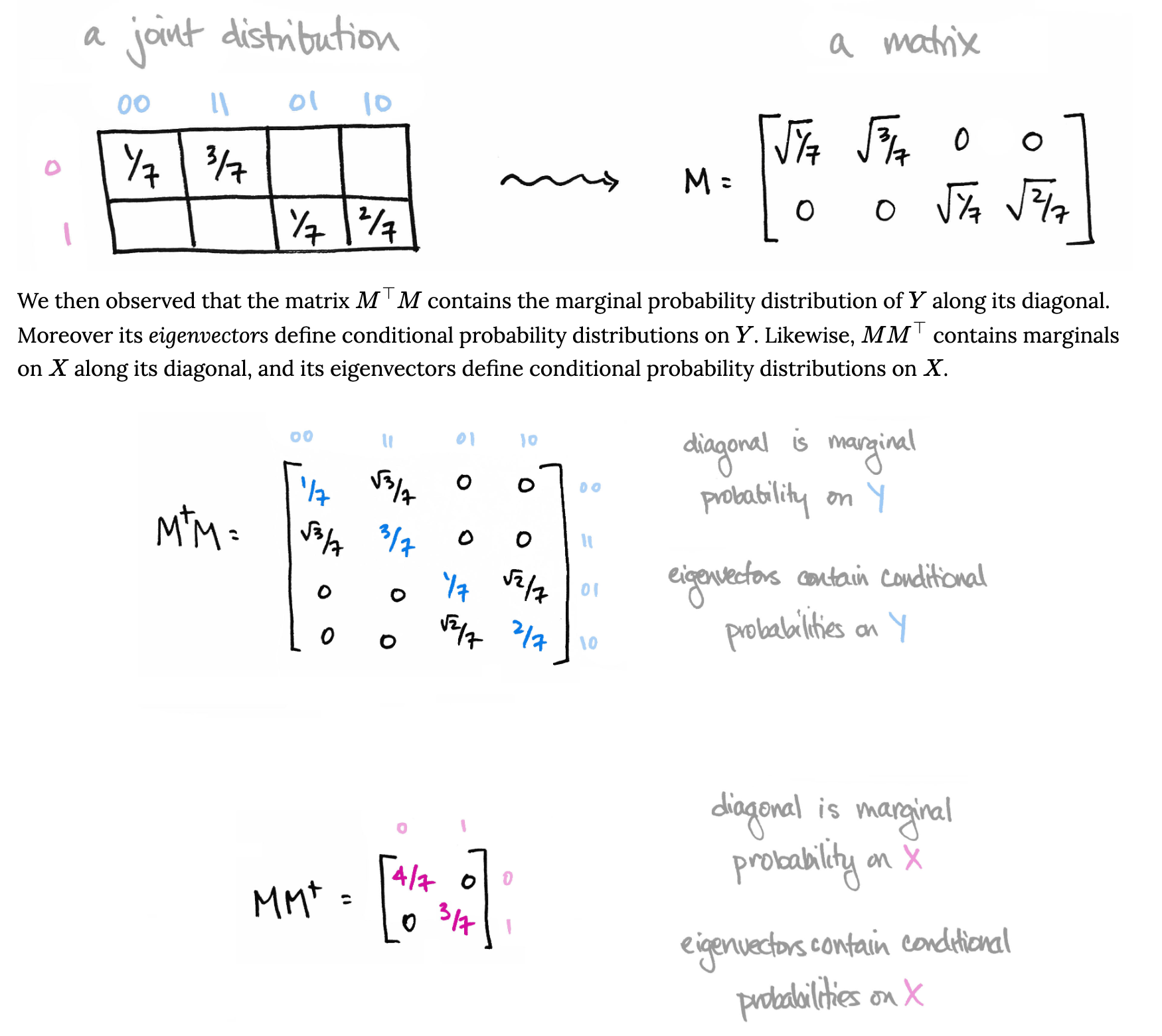quantum view markdown
Some very limited notes on quantum computing
- what does physics tell us about the limits of computers?
- NP - can check soln in polynomial time
- NP-hard - if solved, solves every NP
- NP-complete - NP hard and in NP
- church-turing thesis $\implies$ turing machine polynomial time should be best possible in the universe
- physics could allow us to do better than a turing machine
- examples
- glass plates with soapy water - forms minimum steiner tree
- can get stuck in local optimum
- ex. protein folding
- ex. relativity computer
- leave computer on earth, travel at speed of light for a while, come back and should be done
- if you want exponential speedup, need to get exponentially close to speed of light (requires exponential energy)
- ex. zeno’s computer - run clock faster (exponentially more cooling = energy)
basics
- An n-bit computer has 2^n states and is in one of them with probability 1. You can think of it as having 2^n coefficients, one of which is 0 and the rest of which are 1. Operations on it are multiplying these coefficients by stochastic matrices. Only produces n bits of info.
- an n-qubit quantum computer is described by 2^n complex coefficients. The sum of their squares sums to 1. It’s 2^n complex coefficients must be multiplied by unitary matrices (they preserve that the sum of the squares add up to 1.)
- Problem: Decoherence – results from interaction with the outside world
- Properties:
- Superposition – an object is in more than one state at once
- Has a percentage of being in both states
- Entanglement – 2 particles behave exactly the opposite – instantly
- Superposition – an object is in more than one state at once
storing qubits
- Fullerenes – naturally found in Precambrian rock, reasonable for storing qubits – can store
- not developed, but some experiments have shown ability to store qubits for milliseconds
intro
- probability with minus signs
- amplitudes - used to calculate probabilites, but can be negative / complex

- applications
- quantum simulation
- also could factor integers in polynomial time (shor 1994)
- scaling up is hard because of decoherence= interaction between cubits and outside world
- error-correcting codes can make it so we can still work with some decoherence
- algorithms
- paths that lead to wrong answer - quantum amplitudes cancel each other out
- for right answer, quantum amplitudes in phase (all positive or all negative)
- prime factorization is NP but not NP complete
- unclear that quantum can solve all NP problems
- Grover’s algorithm - with quantum computers, something like you can only use sqrt of number of steps
- adiabatic optimization - like quantum simulated annealing, maybe can solve NP-complete problems
- dwave - company made ~2000 cubit machine
- don’t maintain coherence well
- algorithms for NP-complete problems may not work
- hope: quantum tunneling can get past local maximum in polynomial time maybe
- empircally unclear if this is true
- quantum supremacy - getting quantum speedup for something, maybe not something useful
maxwell’s demon
- second law of thermodynamics: entropy is always increasing
- hot things transfer heat to cold things
- temperature is avg kinetic energy - particles follow a diistribution of temperature
- separate 2 samples (one hot, one cold) with insulator
- idea: demon makes all fast particles go to hot side, all slow particles go to slow side - this is against entropy
- demon controls door between the samples

- demon opens door whenever high temperature particle comes from cold sample, then closes
- demon opens door for slow particles from hot sample, then closes
- problem: demon has to track all the particles (which would generate a lot of heat)
quantum probability
-
based on this blog post
- marginal prob. loses information but we don’t need to
-
